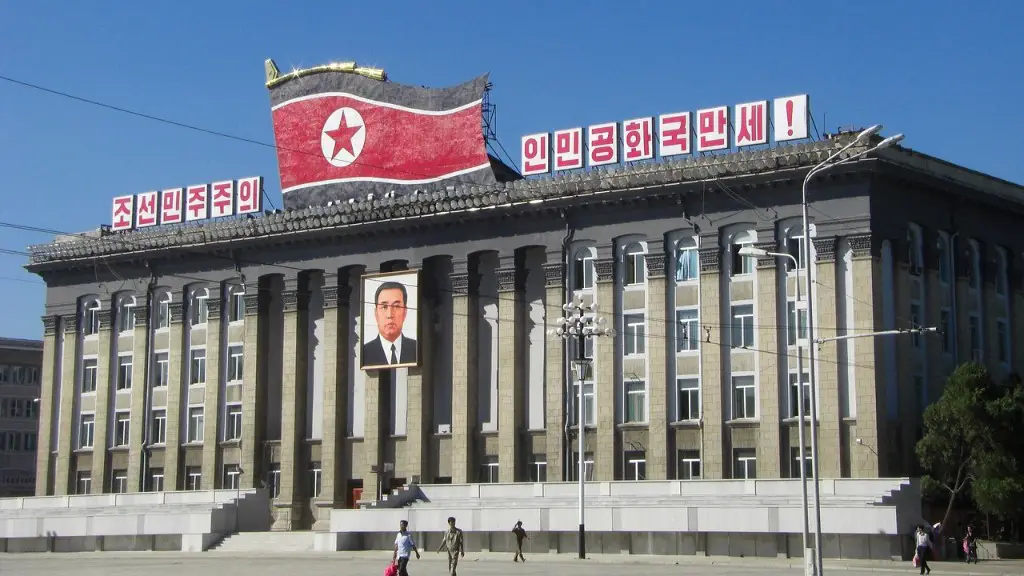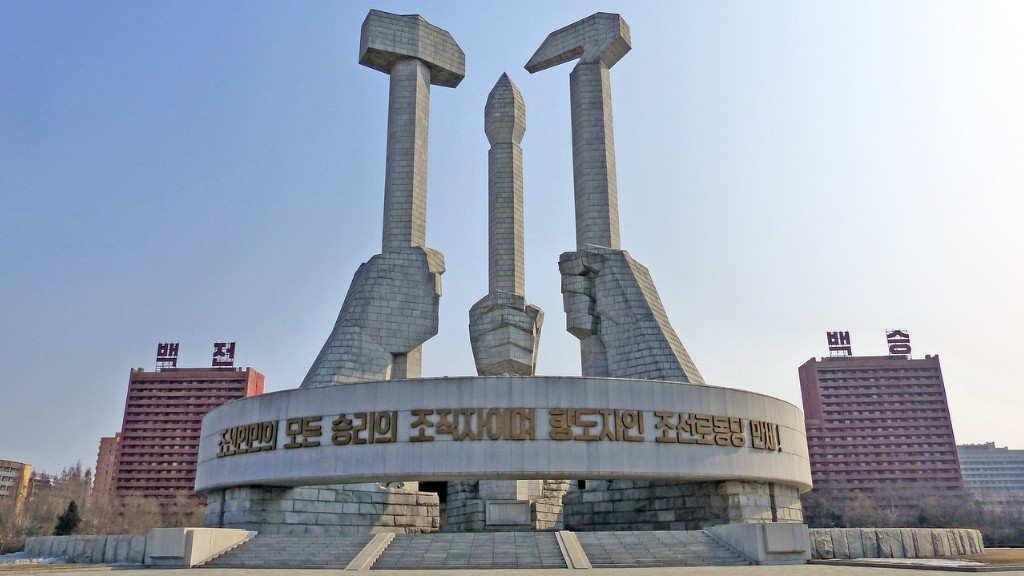Why Is North Korea So Different From South Korea
One of the most politically and socially contrasting pairs of countries in Asia is North and South Korea, a division that dates back to the end of World War II in 1945. For nearly 70 years, South Korea and North Korea have grown apart on all aspects of life — from the economy, government, military and even down to the mere exchange of dialogue between one another.
At the diplomatic level, North Korea has always kept itself at a distance, while South Korea has made countless attempts at engaging it. Both countries continue to remain extremely wary and hostile of the other, at least publicly.
The two countries have a number of notable differences. One of the main determinants is the economic positions of both states. To this day, South Korea has achieved impressive growth and is now one of the world’s 20 richest economies. In contrast, North Korea’s economy lags behind, with GDP estimated as 5% of South Korea, or around $40 billion.
The most noteworthy difference between North and South Korea is in terms of their respective political systems. South Korea has a democratic government with the leader being directly elected by the citizens through regular elections. North Korea, meanwhile, has a secretive and authoritarian style of government, where supreme leader Kim Jong-Un holds a great amount of power.
Another aspect of life between the two countries is the level of economic development. South Korea is a global economic powerhouse, with a thriving economy, advanced industry, and a very high standard of living. North Korea, however, is among the poorest countries in Asia, with an economy beset by shortages and reliance on aid from foreign countries.
The main reason for discord between the two states, however, is down to the historical and political divisions. North Korea’s vehemently anti-imperialist and nationalist stance has long been at odds with South Korea’s pro-Western policies.
Additionally, North Korea’s pursuit of nuclear weapons and its reluctance to co-operate with the international community has put it in direct confrontation with the West and, by extension, with South Korea. In contrast, South Korea has welcomed collaboration with the West, becoming an esteemed part of the global economy.
In a nutshell, the difference between North and South Korea is a result of the traditional divide of the Korean peninsula. South Korea has embraced western values and emerged as one of Asia’s economic superpowers. Meanwhile, North Korea has remained isolated and become increasingly reclusive, making it markedly different from its southern neighbor.
Military Strength
When it comes to the military, South Korea and North Korea are vastly different. According to The GlobalFirePower report 2020, South Korea boasts an impressive military force of 660,000 personnel including enlisted personnel, as well as a variety of highly-sophisticated tanks, naval vessels and combat aircraft, making it one of 23 most powerful militaries in the world. North Korea, however, has a much less significant military with an estimated force of 1,200,000 personnel and significantly less equipped forces. The lower readiness and training level of North Korean military is one of the key factors that make South Korea’s military superior.
South Korea has also improved its defense capabilities in recent years by engaging in military cooperation with the US, Japan and several other nations, while North Korea has remained relatively isolated and refrained from any international collaborations.
North Korea has, however, been boasting its nuclear capabilities and has conducted several nuclear tests in the past two decades. This has alarmed the international community and made North Korea a threat to its neighbors. South Korea, meanwhile, has strictly avoided any nuclear ambitions and has pursued peaceful negotiations with its northern neighbor.
Overall, South Korea’s large and professional military is a major difference between the two countries, and this has caused a large discrepancy in their geopolitical power.
Social and Cultural Life
North and South Korea have also developed social and cultural differences. South Korea is a modern and globalized nation, making it a popular destination for tourists around the world. The capital Seoul has a bustling nightlife and wide range of tourist attractions, and modern technology such as 5G and electric vehicles are commonplace. North Korea, however, remains closed off from foreign influences and few people are allowed to leave or enter the country.
Moreover, South Koreans enjoy many freedoms that North Koreans lack. These include freedom of the press, the right to vote and freedom of assembly. South Koreans also live in a generally relaxed environment and enjoy a vibrant and open culture, with music, movies and culture steeped in history.
In comparison, North Korea is a relatively stagnant society where freedom of speech and other basic civil liberties are heavily restricted. The country also has a strict set of laws and censorship regulations that prevent citizens from exercising their basic rights. North Koreans have less access to modern entertainment, culture and general information about the outside world.
The deep-rooted cultural and social distinctions between the two countries is what separates them the most.
High-Level Engagement and Negotiations
One of the most important differences is the level of engagement and dialogue between the two countries. South Korea has made several attempts to engage North Korea over the years and has proposed high-level negotiations. However, North Korea is known for its reluctance in engaging with the outside world and has dismissed South Korean calls for talks. This has further heightened the political tensions, not just between the two Koreas, but also between North Korea and the West.
In the past, South Korea has sought direct dialogue with North Korea, but North Korean officials usually reject any offers. South Korea continues to press for negotiations and to promote diplomatic engagement in the hopes of bringing the two Koreas closer.
All in all, North Korea and South Korea have generally avoided direct contact and have not had any real contact on many issues. Over the years, the two countries have grown apart, leading to a number of significant differences.
Social Media Presence
Social media is a huge part of our society and a major marketing platform for businesses and individuals. South Korea is one of the most socially active countries in the world, with the South Koreans being some of the most socially active Asian citizens. According to Statista, South Korea ranks third amongst Asian countries in terms of the number of active social media users, being only behind India and China.
At the same time, North Korea is amongst the least socially active countries in the world, as the citizens are not allowed to access the internet or use social media platforms. North Korea also strictly monitors the activity of its citizens, making any sort of social media usage impossible for average people.
Overall, North Korea’s inability to access the online world keeps it at a considerable distance from South Korea, who’s citizens live and breathe the digital era.
Freedom of Information
The South Korean government has also been praised for its transparent and liberal stance towards information. South Korea is a leader in terms of freedom of information, with the government allowing individuals to access and criticize government policies without any punishment or restrictions.
In contrast, North Korea’s government is fiercely secretive and severely restricted when it comes to information. North Koreans are limited to the government-controlled media, which is often heavily biased and censored to the point of being considered propaganda.
The stark differences in freedom of information between North and South Korea can be seen in a myriad of ways: freedom of speech, freedom of assembly and even access to the internet. South Koreans are free to access international sites, while North Koreans are limited to local news sources.
In summary, North and South Korea’s differences in terms of information access is one of the clearest indicators that demonstrate the chasm between the two countries.
Public Perception
The perception of both countries have diverged drastically over the years. South Korea has become one of the most admired countries in the world. It is acknowledged for its economic and social progress, democratic values and commitment to human rights. People around the world admire South Korea for its modern culture and progressive attitude.
North Korea, on the other hand, is seen by many in the international community as a rogue state. Its oppressive government, human rights abuses and refusal to cooperate with other countries has resulted in North Korea being viewed as one of the most isolated and dangerous countries in the world.
The public opinion of North Korea could change if the country changes its policies, but for now North Korea remains a pariah in the international community.
At the end of the day, North and South Korea remain polar opposites in many aspects of life. From the economy to social and political issues, the two states couldn’t be further apart.





